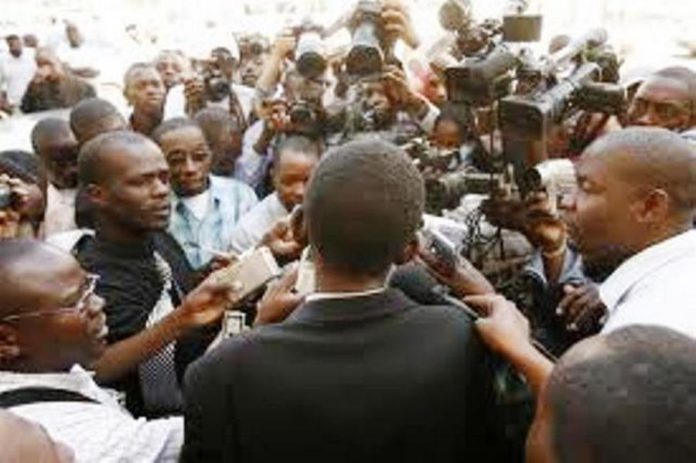The United Nations Educational, Scientific and Cultural Organisation (UNESCO) has lamented the frequent attacks and threats journalists face in line of duty.
Concerned by the growing numbers of reports on acts of violence against journalists during demonstrations, UNESCO Director-General, Audrey Azoulay, has urged member states and organisations to guarantee the safety of journalists in their bid to speak the truth.
According to UNESCO, “death is not the only risk journalists face; attacks on the press can take the form of threats, kidnappings, arrests, imprisonment or harassment (both online and offline), and they are targeted at women in particular.”
It is against this backdrop that UNESCO has called on judges and prosecutors to promote swift and effective criminal proceedings against perpetrators of crime against journalists.
“Worldwide, between 2006 and 2020, nearly 1,200 journalists were killed in the line of duty. Many have lost their lives while covering conflicts.
“But even more are being killed outside situations of conflict, murdered for investigating issues such as corruption, trafficking, political wrongdoing, human rights violations and environmental abuses,” a statement dated November 2, 2021, said.
Wanton attacks on Ghanaian journalists
Journalists in Ghana continue to be vulnerable to brutal attacks by security operatives, party faithful, and the public.
JoyNews‘ multiple award-winning journalists, Latif Iddrisu, was assaulted by some officers of the Ghana Police Service at the Criminal Investigations Department Headquarters.
The assault left him with a fractured skull and adverse ramifications to his memory, the journalist received medical attention at the Korle-Bu Teaching Hospital but had to seek medical attention in the USA after persistent relapses in his condition.
Investigative journalist with the Tiger Eye Private Investigations, Ahmed Hussein Suale, was also murdered by unknown assailants in 2019.
The deceased was key in the #12 investigations about corruption in Africa which led to the downfall of former Ghana Football Association president, Kwesi Nyantakyi.
Assin Central Member of Parliament, Kennedy Agyapong, is on record to have splashed images of the undercover journalist on live television instigating people to beat him for a reward.
Justice is yet to be served as his family has accused the police of failing to provide proper updates on the level of investigations conducted into the case, two years after the gruesome killing.
On Tuesday, May 11, 2021, a journalist with Citi FM/TV, Caleb Kudah was arrested by the National Security Ministry for filming in a ‘restricted area.’
According to the journalist, he was handcuffed and subjected to physical abuse during interrogation.
National Security operatives also stormed the Adabraka premises of Citi FM/Citi TV in a Rambo-style to arrest his colleague, Zoe Abu-Baidoo.
These and other cases of assaults have been widely condemned locally and internationally but persons involved in these acts are yet to face legal sanctions.
Where UNESCO comes in
UNESCO celebrates the ‘International Day to End Impunity for Crimes against Journalists’ every year on November 2 to raise awareness of, and support freedom of expression.
This year’s #EndImpunity campaign is expected to highlight some of the specific risks journalists face in their quest to uncover the truth.
Freedom of expression is enshrined in UNESCO’s Constitution. Within the framework of the UN Plan of Action on the Safety of Journalists and the Issue of Impunity, UNESCO promotes the safety of media professionals and global awareness-raising.
To advance that cause, UNESCO says it has trained nearly 23,000 judicial officials, including judges, prosecutors and lawyers on how they can carry out their respective roles towards achieving a common goal.
“The training has covered international standards related to freedom of expression and the safety of journalists and has placed a particular focus on issues of impunity,” Audrey Azoulay noted.

